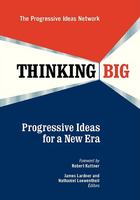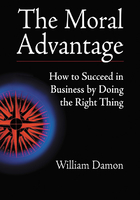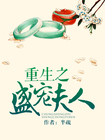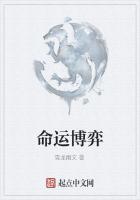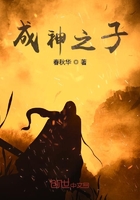In this way they pursued their course, until they came to a small peninsula, which with two or three days" labor might be separated from the mainland and surrounded with water, and was therefore specified1 by Columbus as an excellent situation for a fortress. On this were six Indian cabins, surrounded by groves and gardens as beautiful as those of Castile. The sailors being wearied with rowing, the admiral returned to the ships, taking seven of the natives with him, that they might acquire the Spanish language and serve as interpreters.
Having taken a supply of wood and water, they left the island of San Salvador the same evening, the admiral being impatient to arrive at the wealthy country to the south, which he flattered himself would prove the famous island of Cipango2.
Ⅱ
At midday on the 15th of March, Columbus entered the1Specified: named; selected.
2Cipango: a fabulous island, the object of search of many early navigators.
harbor of Palos, whence he had sailed on the 3d of August in the preceding year, having taken not quite seven months and a half to accomplish this most momentous1 of all maritime2 enterprises.
The triumphant return of Columbus was a prodigious event in the history of the little port of Palos, where everybody was more or less interested in the fate of his expedition.
Great was the agitation of the inhabitants of Palos when they beheld one of the ships standing up the river; but when they learned that she returned in triumph from the discovery of a world, the whole community broke forth into transports of joy. When Columbus landed, the multitude thronged to see and welcome him, and a grand procession was formed to the principal church, to return thanks to God for so signal a discovery made by the people of that place-forgetting, in their exultation, the thousand difficulties they had thrown in the way of the enterprise.
At the court he was treated with like honor, being addressed as "Don Christopher Columbus, our admiral of the ocean sea, and viceroy and governor of the islands discovered in the Indies."About the middle of April Columbus arrived at Barcelona, where every preparation had been made to give him a solemn and magnificent reception. His entrance into this noble city has been compared to one of those triumphs3 which the1Momentous: important.
2Maritime: marine; connected with the sea.
3Triumphs: magnificent processions and ceremonies held by the Romans in honor of victorious generals.
Romans were accustomed to decree to conquerors. First, were paraded the Indians, painted according to their savage fashion, and decorated with their national ornaments of gold. After these, were borne various kinds of live parrots, together with stuffed birds and animals of unknown species, and rare plants supposed to be of precious qualities. Great care was taken to make a conspicuous display of Indian coronets, bracelets, and other decorations of gold, which might give an idea of the wealth of the newly discovered regions.
After this, followed Columbus on horseback, surrounded by a brilliant cavalcade of Spanish chivalry. The streets were almost impassable from the countless multitude; the windows and balconies were crowded with the fair; the very roofs were covered with spectators. It seemed as if the public eye could not be sated1 with gazing on these trophies2 of an unknown world, or on the remarkable man by whom it had been discovered.
1Sated: satisfied.
2Trophies: evidences of con quest; memorials of victory.



